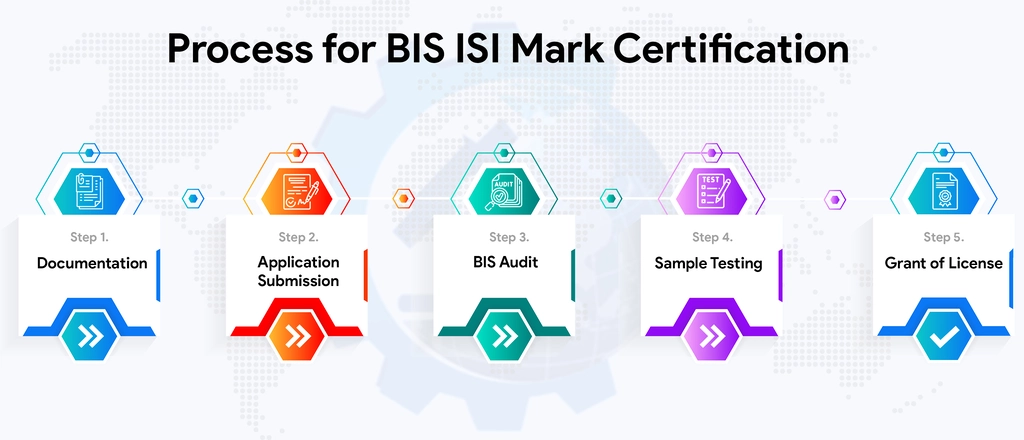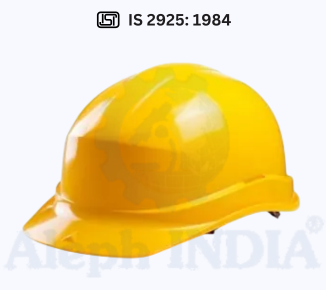BIS CERTIFICATION for Specification for Industrial Safety Helmets IS 2925
Published Date: November 19, 2024 4 min Read
Introduction
IS 2925: 1984 is an Indian Standard that specifies the requirements for industrial safety helmets in construction, mining, and manufacturing industries under BIS Certification. These helmets protect workers' heads from accidents caused by falling items, impacts, or electrical hazards. They are available in various styles, including full-brim and half-brim, and provide safety and comfort in various job environments.
The BIS License ensures that the helmets satisfy all necessary safety requirements, which is critical for market access and regulatory compliance in India. This certification process also builds consumer trust. To facilitate BIS customs clearance, manufacturers must pay the necessary costs for BIS certification and follow the QCO Order. Compliance with BIS standards benefits both.
OVERVIEW
A standard known as IS 2925: 1984 describes the requirements for industrial safety helmets. It establishes specifications for the components, design, craftsmanship, and finish of helmets meant to shield employees from risks like falling objects. Helmets used in construction, shipbuilding, mining, tunneling, quarrying, and other related industries where workers risk head injuries are covered by the standard. It guarantees that the helmets are dependable, long-lasting, and offer the required level of protection. To reduce the risk of harm and enhance worker safety in dangerous work conditions, the standard also specifies performance requirements to guarantee the helmets fulfill safety and quality standards.
Key highlights
| Product Name | Industrial Safety Helmets. |
| Applicable Indian Standard | IS 2925: 1984 |
| Applicable Certification Scheme | Product Certification Scheme (ISI Mark Scheme) Scheme 1 |
| Applicable Mark: | BIS Standard Mark (ISI Logo) |
| Compliance Requirement | Mandatory |
| Quality Control Order | Click here |
| Ministry | MINISTRY OF COMMERCE AND INDUSTRY |
| Scope as per Standard | This standard lays down the requirements regarding material, construction, workmanship and finish and performance requirements of helmets intended to provide protection against falling objects and other hazards which may be encountered in mining, tunnelling, quarrying, ship building, construction projects and similar other industrial occupations. |
| Major Country of Import | United States, United Kingdom, Australia, Canada, Saudi Arabia |
Applicable Tests
Mandatory Tests:
- Shell
- Harness
- Metal parts
- Sizes
- Construction
Optional Tests:
- NIL

Note
For Detailed Information about the Procedure for BIS ISI Certification, Visit :
Timeline for BIS Certification
The approximate timeline to obtain BIS certification for Industrial Safety Helmets IS 2925: 1984 is as follows:
- For Indian Manufacturers (Standard Timeframe – 30 days)
- For Foreign Manufacturers (Standard Timeframe – 180 days)
Benefits of BIS Certification
BIS certification boosts product credibility, builds customer trust, opens market opportunities, and gives manufacturers a competitive edge.
| Benefit | Description |
|---|---|
| Access to the Indian Market | BIS certification is needed for many products, making it easier to enter the Indian market. |
| Compliance with Indian Standards | It ensures products meet national safety and quality standards, making them reliable. |
| Better Product Credibility | Certification proves that products meet high-quality standards, helping them stand out. |
| Increased Customer Trust | Customers trust certified products for their quality and safety. |
| Benefits for MSMEs | Small and medium businesses gain a competitive edge and can access government tenders with BIS certification. |
Conclusion
BIS certification is essential for growth in India. ALEPH INDIA helps manufacturers get certified.
Aleph INDIA has been serving the industry as a single-window operator for all product regulatory compliance. We can assist importers or manufacturers in meeting all criteria for importing or selling a product in the Indian market.
Frequently Asked Questions
International Audits & Participation
Testimonials
BIS REGISTRATION FOR ELECTRONIC & IT PRODUCT
In the era of globalization, world trade is growing rapidly and henceforth, Manufacturing and Import/Export businesses are also growing drastically...View More
BIS CERTIFICATE FOR FOREIGN MANUFACTURER
The Economy of India-the fastest developing economy on the globe with the capabilities that help it matches up with the biggest international...View More
PRODUCT CERTIFICATION SCHEME (ISI MARK) FOR DOMESTIC MANUFACTURERS
Anything a person buys from food to cars, clothes to electronics, branded to unnamed products there is always a question that wanders in one’s...View More
WIRELESS PLANNING AND COORDINATION (WPC)
WPC: Wireless means communication done from one point to another point without the wires and cables. Electromagnetic waves carry the ...View More
BUREAU OF ENERGY EFFICIENCY (BEE) CERTIFICATE
BEE CERTIFICATE: Energy is the future, and its conservation is the way of the bright future. Everyone claims the environment is important...View More
E-WASTE MANAGEMENT
E-waste is one of the world's fastest-growing trash streams. We currently manufacture almost 50 million tones of it each year...View More
View All Services
Request a call back.
Would you like to speak to one of our Senior Technical advisers over the phone? Just submit your details and we’ll be in touch shortly. You can also email us if you would prefer.






























